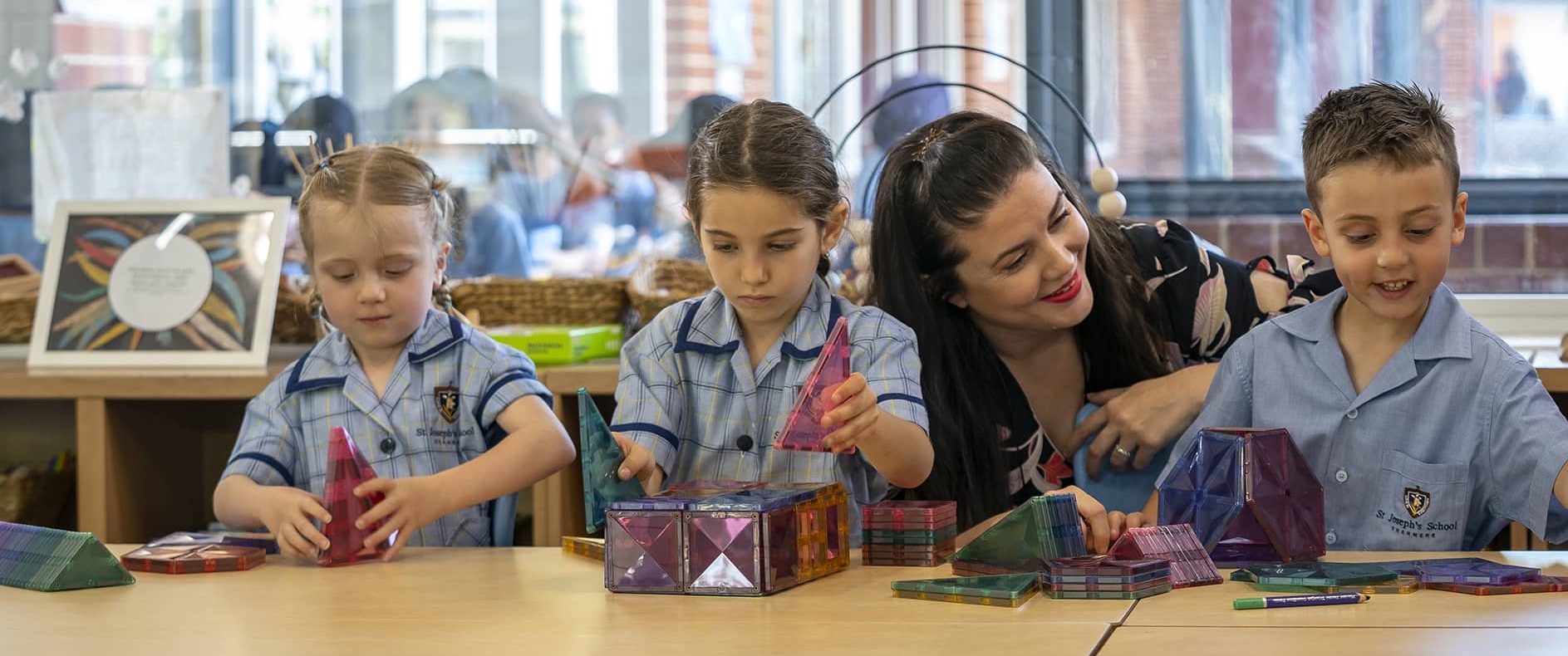
We are committed to supporting students in their learning journey.
We are committed to supporting students in their learning journey.
The learning program from Reception to Year 6 at St Joseph's School Tranmere is based on the Australian Curriculum.
The Australian Curriculum outlines the key elements of what young Australians should learn as they progress through their primary schooling and into high school, setting consistent national standards to improve learning outcomes. It is the foundation of our students learning, growth and active participation as productive members of society.
Curriculum Areas
In each learning area or subject, content descriptions specify what young people will learn and achievement standards describe the depth of understanding and the sophistication of knowledge and skill expected of students at the end of each year level or band of years in their schooling.
Alongside disciplinary knowledge, the Australian Curriculum provides seven general capabilities:
General Capabilities
The general capabilities comprise an integrated and interconnected set of knowledge, skills, behaviours and dispositions that apply across subject-based content and equip students to be lifelong learners and be able to operate with confidence in a complex, information-rich, globalised world. In the Australian Curriculum, the general capabilities are developed and applied, where relevant, through the learning areas.
Cross-Curriculum Priorities
This helps us continually improve our teaching methods and learning styles according to the needs of both students and classes.
We regularly report back to parents in a wide range of ways including: